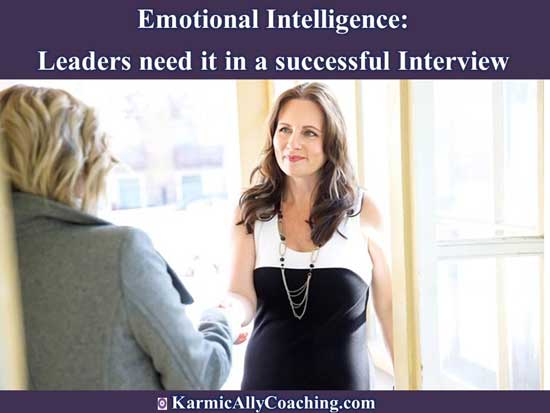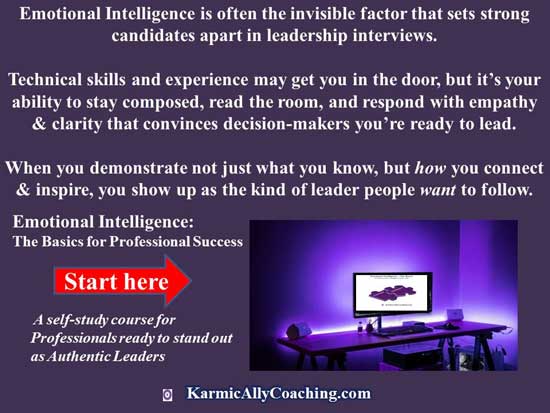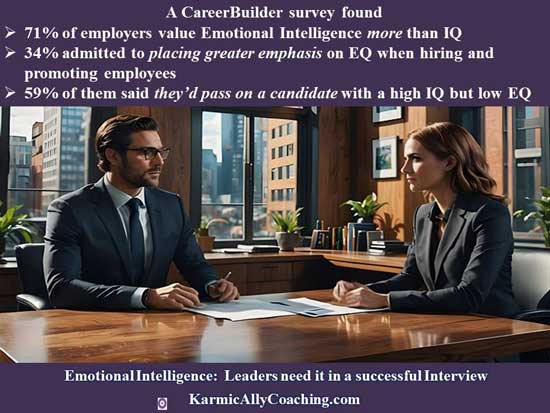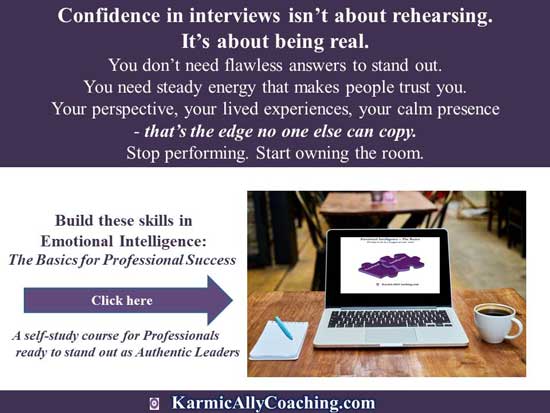This post has already been read 87 times!

As a manager or leader, you’re expected to bring strategic vision, operational excellence, and results.
But increasingly, organizations are looking beyond technical prowess and asking: Can this leader connect, inspire, and regulate under pressure?
Emotional intelligence (EI) is no longer a soft skill—it’s a leadership imperative.
What Is Emotional Intelligence for Leaders?
Emotional intelligence is the ability to understand and manage your own emotions, while effectively navigating the emotions of others.
For leaders, this translates into:
- Self-awareness: Recognizing your emotional triggers and biases
- Self-regulation: Staying composed and intentional under stress
- Empathy: Understanding team dynamics and individual needs
- Social skills: Building trust, resolving conflict, and motivating others
5 Case Studies of Emotionally Intelligent Leaders in Action
Emotional Intelligence isn’t just a leadership asset but a game-changer. Check out these real-world examples.
Sundar Pichai – CEO of Alphabet (Google)
Sundar Pichai’s rise from engineer to CEO is a master class in emotionally intelligent leadership. Known for his humility and empathy, Pichai fosters psychological safety and open communication across Google’s diverse workforce.
His leadership style encourages innovation by making employees feel heard and valued.
- Empathy in Action: Pichai’s ability to understand employee perspectives has built a culture of inclusivity and trust.
- Resilience under Pressure: During regulatory scrutiny and internal challenges, his calm and transparent communication helped maintain morale and stakeholder confidence.
Howard Schultz – Former CEO of Starbucks
Schultz returned to Starbucks after an eight-year hiatus, driven not by profit but by love for the company and its people. His emotionally intelligent leadership led to initiatives like generous healthcare benefits, inspired by his father’s struggles.
- Values-Driven Leadership: Schultz’s decisions were rooted in compassion and fairness.
- Cultural Impact: He built a brand synonymous with community and care.
Indra Nooyi – Former CEO of PepsiCo
Nooyi’s philosophy of “performance with purpose” redefined leadership at PepsiCo. She emphasized empathy, often writing personal letters to employees’ families to thank them for their support.
- Human-Centered Strategy: Nooyi aligned business goals with employee wellbeing.
- Authenticity: Known for singing in hallways and walking barefoot while patrolling the office, she broke down hierarchical barriers and built genuine connections.
Jeff Bezos – Founder of Amazon
Often portrayed as intensely analytical, Bezos also demonstrates Emotional Intelligence through his obsession with customer experience and long-term relationships.
- Customer Empathy: His focus on understanding customer needs shaped Amazon’s success.
- Team Dynamics: Bezos encouraged internal debate and diverse thinking, fostering a culture of innovation.
Oprah Winfrey – Media Mogul & Philanthropist
Oprah’s Emotional Intelligence is central to her brand. Her openness, vulnerability, and ability to connect deeply with audiences have made her a force in media and philanthropy.
- Emotional Resonance: She uses storytelling to inspire and heal.
- Leadership through Empathy: Oprah’s success stems from her ability to understand and elevate others.
These leaders prove that Emotional Intelligence isn’t just a “nice-to-have”, but a strategic advantage.
Whether you’re managing a team or steering an entire organization, leading with empathy and self-awareness can elevate performance, loyalty, and innovation.
Developing Emotional Intelligence as a Leader
According to a CareerBuilder survey, 71% of employers value emotional intelligence more than IQ.
34% of them admitted to placing greater emphasis on EQ when hiring and promoting employees.
59% of them said they’d pass on a candidate with a high IQ but a low EQ.
Why? Because emotionally intelligent leaders foster healthier cultures, retain talent, and drive sustainable performance.
How can you demonstrate your people skills to a stranger in less than an hour?
Firstly, you need to develop and demonstrate Emotional Intelligence.
Secondly you need to convey this Emotional Intelligence in the interview.
Here are actionable strategies to strengthen your Emotional Intelligence and lead with greater impact:
1. Practice Mindful Living by increasing your Self-Awareness
- Reflect daily on your decisions and interactions.
- Use journaling or meditation to increase emotional clarity.
- Own your mistakes and model accountability.
2. Expand your Emotional Vocabulary
- Know what to call your feelings to make it easier to process them.
- Learn to distinguish between frustration, disappointment, and burnout.
- Labeling emotions accurately helps you respond—not react.
3. Regulate before you react to manage impulses
- Pause before responding in high-stakes situations.
- Use breathing techniques or mental reframing to stay grounded.
4. Lead with Agency
Psychologists use the term agency to describe your ability to recognize and change your environment.
- Take initiative to shift toxic dynamics or outdated processes.
- Assertiveness is not aggression—it’s clarity with compassion.
5. Cultivate Optimism
- Frame setbacks as learning opportunities.
- Positivity is contagious—your team will mirror your mindset.
6. Serve beyond Self
- Volunteer, mentor, or support causes that matter to your team and community.
- Giving builds perspective and emotional resilience.
Suggestions to demonstrate Emotional Intelligence in Leadership Interviews
If you’re interviewing for a leadership role, expect psychological tests and strategic questions that probe your emotional intelligence. Be prepared to make a positive impression.
Here’s how to showcase it effectively:
Prepare Purposeful Stories
Questions about emotional intelligence often require significant thought, and a detailed description about how you would handle specific challenges.
- Share examples of how you handled team conflict, led change, or supported a struggling employee.
- Practice with a peer who can challenge your clarity and tone.
Listen like a Leader
- Show active listening with eye contact, nods, and thoughtful responses.
- Demonstrate that you value dialogue over monologue.
Model Professional Courtesy
Consideration for others is part of Emotional Intelligence.
- Arrive early, follow up with thank you notes after the interview, and respect everyone you meet.
- These small gestures reflect your emotional maturity.
Highlight Your Growth Journey
It’s natural to have weaknesses. Employers want to know what you’re doing to overcome them. Tell them how you learn from experience and acquire new qualifications.
- Discuss how feedback shaped your leadership style.
- Show you’re committed to evolving—not just executing.
Talk through Tough Moments
Challenging situations put emotional intelligence to the test.
- Share how you navigated a team crisis, managed an unhappy client or resolved a disagreement.
- Focus on empathy, resolution, and lessons learned.
Express Genuine Enthusiasm
- Speak to your passion about the opportunity and the company’s mission.
- Share your motivation, why you chose your career path, and what made you apply for the current opening.
- Energy and authenticity leave lasting impressions.
Ask Insightful Questions
Come prepared with some questions of your own.
- Inquire about team culture, leadership expectations, and strategic priorities.
- Show you’re thinking beyond the role—into the organization’s future.
Final Thoughts about why Emotional Intelligence is your Leadership Superpower
Emotional intelligence isn’t just about getting hired—it’s about leading well.
The benefits of emotional intelligence go far beyond just landing a job offer. Developing these skills can enhance your mental and physical wellbeing and strengthen your relationships. Becoming more aware and empathetic will enrich your personal and professional life.
In the corporate world, it enhances your relationships, reduces burnout, and creates a ripple effect of trust and engagement across your team. Leaders who invest in EI build workplaces where people thrive—not just survive.
Enroll in Emotional Intelligence: The Basics for Professional Success here.






 I adhere to the Certified Coaches Alliance Code of Ethics and Standards. A copy is available on request.
I adhere to the Certified Coaches Alliance Code of Ethics and Standards. A copy is available on request.
 Let's Talk through the Connect Form:
Let's Talk through the Connect Form: